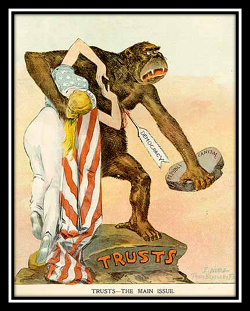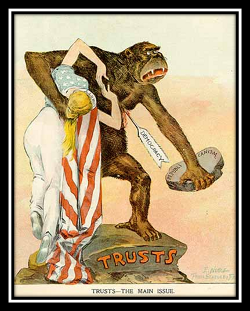
In the last few years a product called Bed-in-a-Box has roiled the United States mattress making markets and allowed for the shipping of cheap Chinese mattresses. Prior to the Bed-in-a-Box model is wasn’t particularly cost effective to ship cheap Chinese mattresses to the United States and therefore companies here largely didn’t have to deal with such competition. Now they do and they’re doing something about, petitioning the government to save them.
The Federal Government is now claiming Chinese manufacturers are Dumping cheap Chinese mattresses on the United States and Commerce Department is going to institute tariffs of over 1000% on them. Dumping is an Anti-Trust issue and actually under the purview of the United States government so they do have an argument in this case. The Commerce Department claims the Chinese are dumping their mattresses at an unreasonably low level in order to drive out competition and create a monopoly from which they will eventually raise prices and lower quality.
There are very few instances of Dumping actually doing those things. Now, it is clear when a competitor comes in with equally high-quality product at a much lower price, the established businesses will suffer. The mattress firms petitioning the Commerce Department admit the cheap Chinese mattresses are of equal quality to their own so that’s not an issue. People are getting a product they want at a price they like, that’s good for consumers and I’m sure there are plenty of people sleeping on those mattresses every night and happily so.
The question becomes if the price is intentionally low in order to drive out competition and an eventual increase in price and lowering of quality is planned. I think we need look no further than Walmart to find the answer to this question. China has been inundating the U.S. market with cheap products for decades and, while they certainly have gained a stranglehold on many markets, they haven’t increased prices once they were established, they have kept prices low. This because manufacturing in China is cheaper for a variety of economic reasons that I won’t get into today.
There is nothing wrong with good prices. That’s a good thing for consumers. It’s obviously bad for the manufacturers of mattresses in the United States but that’s what healthy competition is all about, it’s the nature of capitalism. In this case, it can be, and has been, argued that the problem isn’t solely the cheap Chinese mattresses but Bed-in-a-Box competition from other U.S. firms as well. That the Commerce Department is intentionally raising prices for consumers simply to keep an industry afloat that could not otherwise compete.
Welcome to capitalism in the United States. Like higher prices and worse? Keep voting for such.
Tom Liberman


